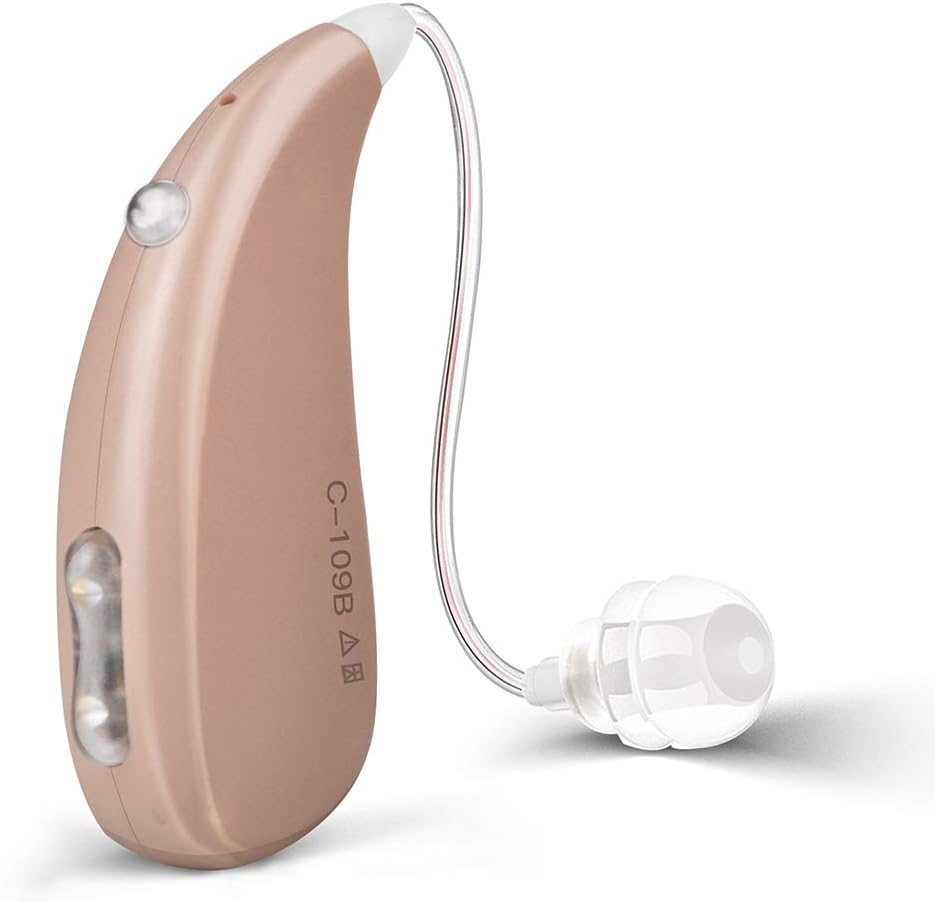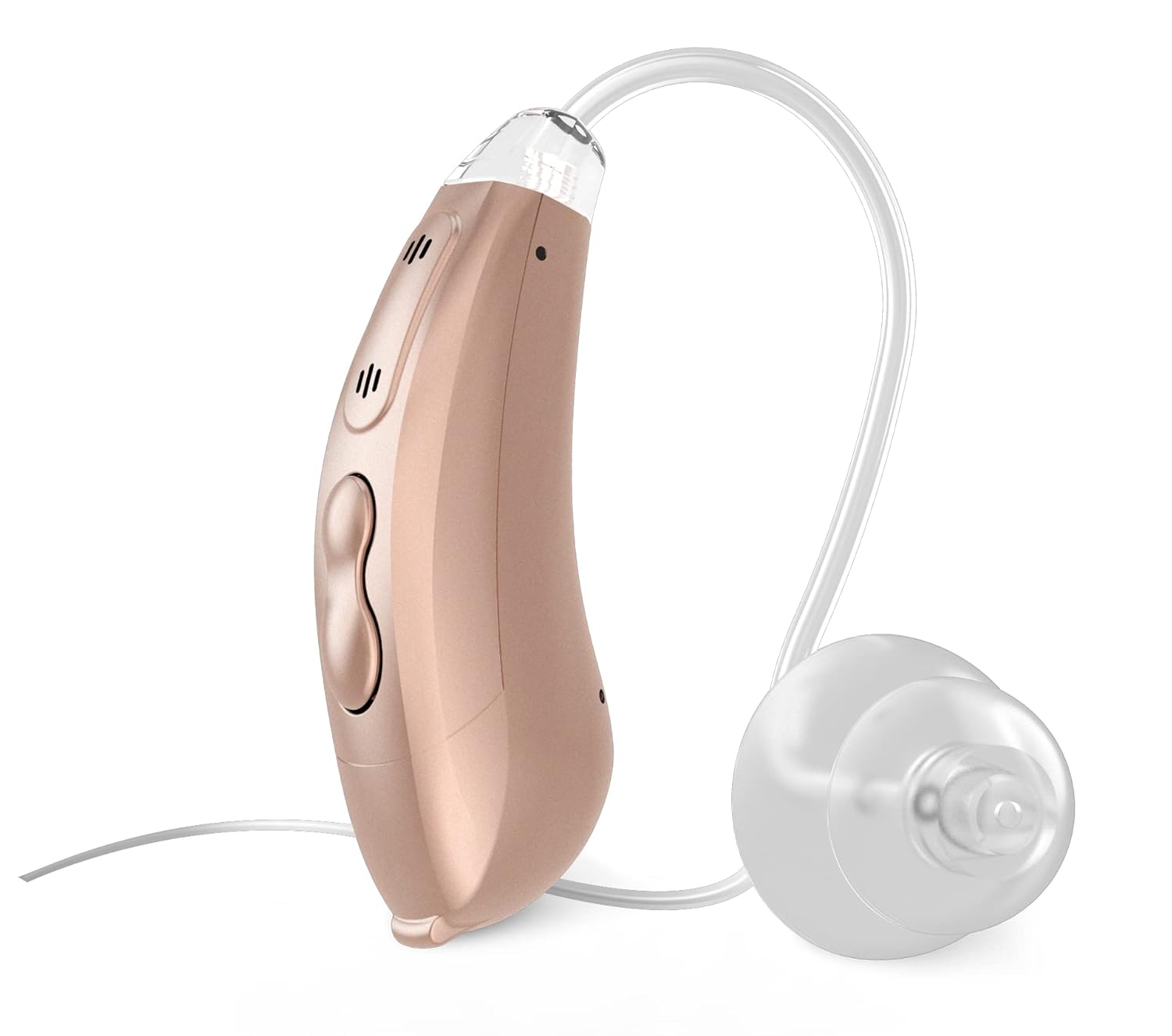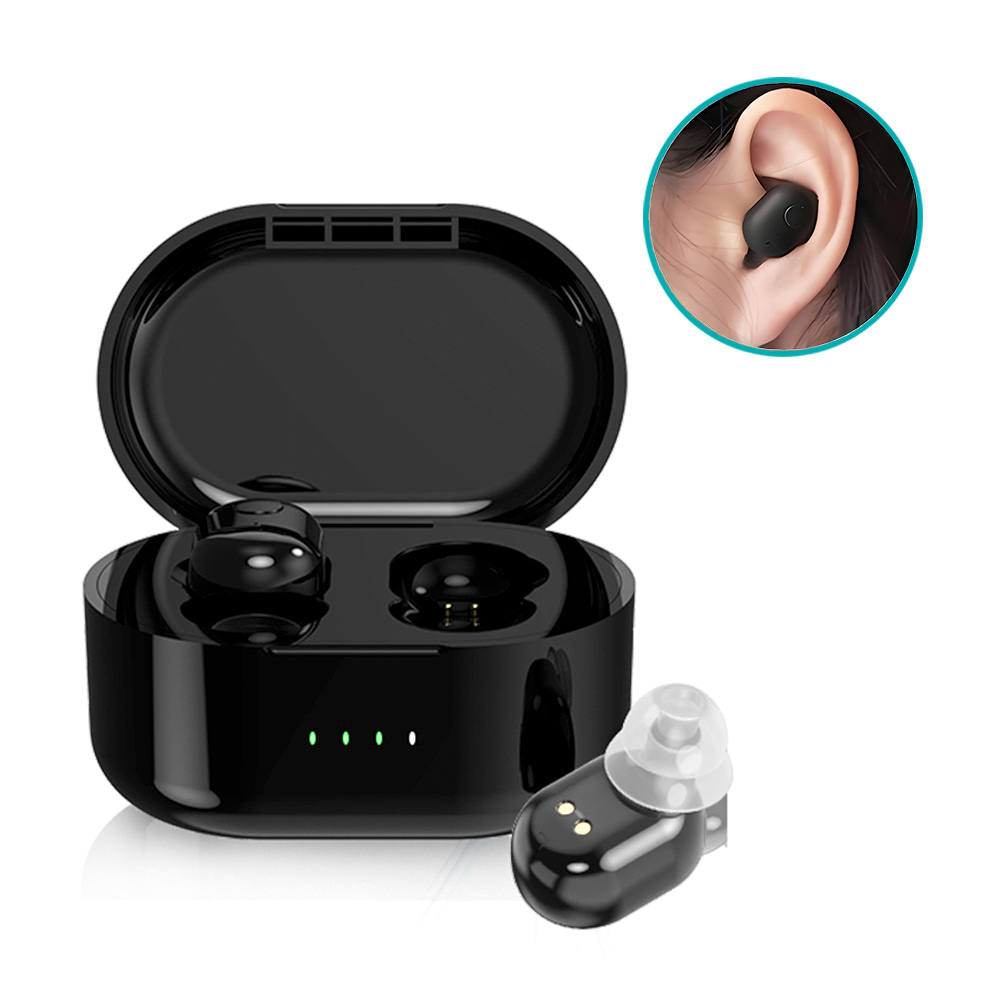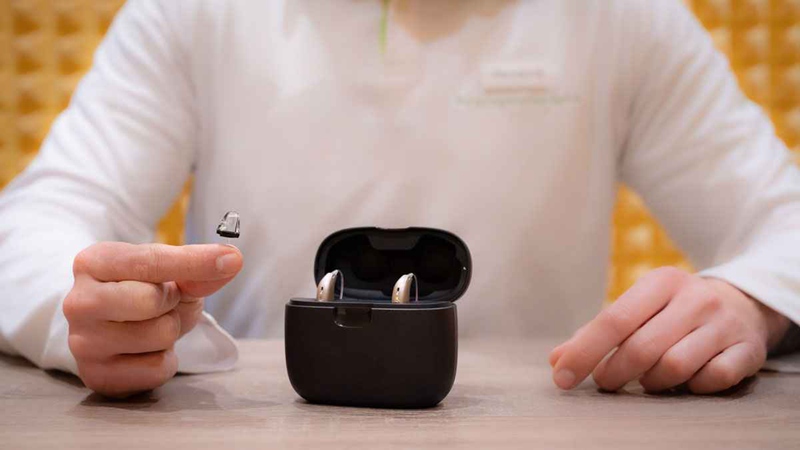
Reviewing new hearing aid options.
My patients are always asking: “How often should I replace my hearing aids?” The answer isn’t as straightforward as you might think. There are many factors that you may need to consider when replacing and/or upgrading your hearing aids. Here are the top 6 questions to ask yourself before upgrading:
1. Are your current hearing aids functioning well?
To perform well, hearing aids require regular maintenance and occasional technical repair. Hearing aids are worn on the body, and they go wherever you go. They aren’t like your cellphone, sitting securely in your pocket or in your purse. They are exposed to the elements, just like anything else on your body, and may be exposed to rain, excessive humidity, extreme temperatures, dust, dirt, etc. Remember, at least part of every hearing aid sits inside the ear canal. Seeing that most ear canals contain a mixture of moisture and earwax, it’s clear that hearing aids aren’t residing in the most hospitable of environments.
Depending on the type of hearing aid you wear, your lifestyle, and your ear canals (some are drier than others), your hearing aids may require a lot of maintenance, or none at all. I have had some patients wear their hearing aids for 5 years without requiring any significant repairs, and others who are in and out of the clinic every few months with moisture (or wax) related issues.
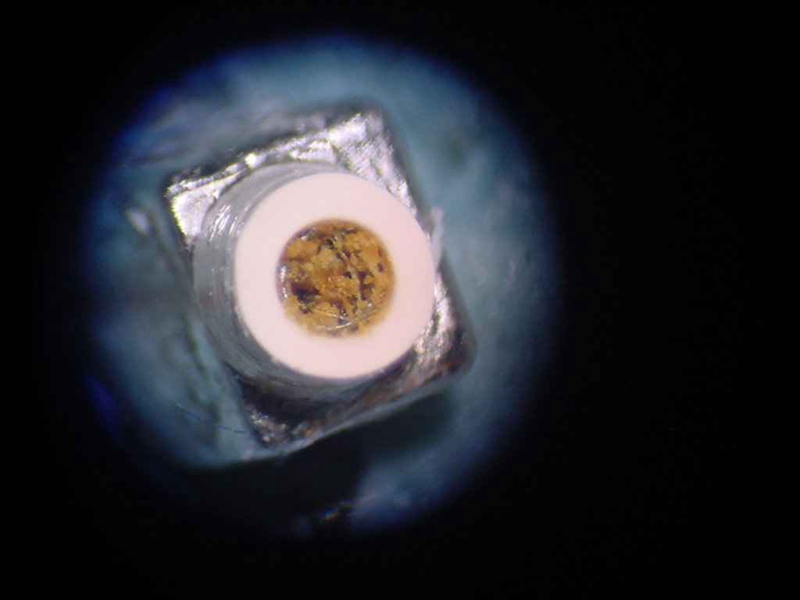 Real-Ear Measurements (REMs) being performed
Real-Ear Measurements (REMs) being performedBottom Line
If your hearing aids are not meeting your hearing prescription, you should ask your hearing provider to improve the fitting. This may require an adjustment of your hearing aids’ digital programming, or some type of cleaning or repair of the devices. If the fitting cannot be improved, your hearing aids may not be adequate for your hearing loss, and you should consider replacing them (especially if they aren’t meeting your hearing needs!).
Some hearing providers provide real-ear measurements for every single patient, as a part of their clinical protocol. The provider must match the output of the hearing aid (in your ear) to a target which is set on the computer screen. A hearing aid “test-box” is used for testing the hearing aid against its specification.
4. Is it worth upgrading to take advantage of new hearing aid technology?
So let’s assume your hearing aids are performing to their optimum level, meeting your hearing prescription, and without any hardware faults. Should you look at upgrading your hearing aids, just to have the latest technology? It turns out this is a difficult question, and one that will depend on whether your current hearing aids are meeting your hearing needs.
Let’s assume your hearing aids are working well, with the exception of taking phone calls in the car. Identifying your hearing need(s) is the first step.
Now you can investigate the new technologies and see if there is anything available that might help. After researching online, you discover a hands-free Bluetooth hearing aid that streams phone calls to both of your hearing aids simultaneously. Bingo. That sounds like it might help!
Now, make an appointment to discuss things with your hearing provider. They should suggest a specific hearing aid with the new technology, and (importantly) one that suits your hearing loss needs. You’re getting close to figuring things out; now you have a product recommendation and a price.
Bottom Line
Weigh up the cost of the new hearing aids against the benefits you expect receive. Do the math, and make your decision. If you’re still not sure, ask your hearing provider about their policy on hearing aid evaluations.
5. Are there any aftermarket hearing aid repair shops that repair or refurbish older hearing aids?
Yes, there are some all-make hearing aid repair labs, but you'll usually need a hearing care professional to gain access to the services of the best and most established labs (e.g., Prairie Labs and Starkey All-Make Repairs).
Audiologist Dawn Heiman, AuD, wrote in HearingTracker's Expert Advice column: “Many manufacturers will not repair the aids after 5-6 years, as they no longer have the parts. I understand that the all-make labs purchase these older parts [usually after 5 years when the manufacturers have launched newer products with newer parts/designs and no longer service the older models]...We have come across a few cases where the all-make labs no longer have the hearing aid parts for a patient’s older hearing aid, and they will admit that nothing can be done. A couple of times, the hearing aid was repaired, but our office could not program the patient’s prescription into the hearing aid because the software of the older hearing aid no longer works with the operating system in our computers...”
Audiologist Scott Frink, AuD, wrote on the same subject: “If the [hearing provider] tells you 'Sorry, your hearing aid is too old and just needs to be replaced,' they may just be saying this because they want to sell you something new. That's not always the case; some aids just can't be fixed, and some are so old they should really just be replaced. I find there are generally three reasons to replace an old hearing aid:
- Your hearing loss has outpaced the power availability of your hearing aids
- Wear and tear, and
- Better technology has become available to such a degree it makes no sense to continue repairing the old aids.
“The first two are fairly self-explanatory. For the latter, manufacturer technology tends to get replaced / updated every 12-18 months. If you bought the right level of technology previously, the next generation may be slightly better, but [usually not enough] to justify the cost of replacement. Two generations later? Maybe. Three generations later? Probably. At this point, it's been about 5 years—hence, [this is] when I find patients tend to replace in that time frame,” writes Dr. Frink.
However, as long as the hearing aids are not too old (>7-10+ years depending on the type, brand, and model), it's certainly possible they can be repaired or refurbished, provided the all-make lab has the necessary parts or components for servicing them. The repairs will be less expensive (but not necessarily cheap) than buying a new hearing aid, but they will usually come with a more limited 6-month warranty, you'll generally be without your devices for at least a few weeks, and you'll be missing out on new technology.
Bottom Line
If you really like your older hearing aids, or wish to hang onto them longer to save money, you can ask your hearing provider about working with an all-make repair lab to restore their functionality. If you're not ready to purchase new devices and your provider says they don't work with an all-make repair lab, you might consider seeking out repair or refurbishment services from another hearing care business that does.
6. How do you plan on financing your replacement/upgrade?
If you are receiving funding from the government (or another 3rd party), there may be limitations on how often you can replace your hearing aids. For example, Medicaid regulations in Florida dictate that “hearing aids are limited to one per ear every three years,” while Idaho’s dictate “one hearing aid in a lifetime.”
Private insurance companies are less likely to help with the cost of hearing aids, but if you’re lucky enough to live in New Hampshire or Rhode Island, you may be entitled to regular hearing aid upgrades through your insurer. In fact, there are a total of six states (AR, CT, IL, NH, RI, and WA) that require insurers to offer coverage for hearing aids.
For more, see our articles on health insurance coverage, financing hearing aids, and strategies for reducing the cost of paying for hearing aids.
Bottom Line
If you’re personally financing your hearing aid replacement, and you can afford to upgrade, upgrade whenever you feel the need. Otherwise check with your 3rd party funder, to see how often you’re able to receive funding.
7. When should I consider cochlear implants?
Your hearing ability will gradually deteriorate over time. If you reach the point where hearing aids can no longer restore your ability to understand speech, you may need to consider the option of cochlear implants. As a rule of thumb, you would be considered a cochlear implant candidate if you have severe to profound hearing loss, and understand less than half of what's said in everyday conversations (in quiet scenarios)—with your well-tuned hearing aids activated.
Bottom Line
If you've tried everything else, and still can't perform well with hearing aids, consider seeking a professional opinion on cochlear implants. For help finding a clinic to advise you, check the website for Cochlear and Advanced Bionics, the two leading cochlear implant brands.
The above is the interpretation of When to Upgrade: How Often Should I Replace My Hearing Aids? provided by Chinese hearing aid supplier Shenrui Medical. Link https://www.sengdong.com/Blog/When-to-Upgrade-How-Often-Should-I-Replace-My-Hearing-Aids.html of this article is welcome to share and forward. For more hearing aid related information, please visit Blog or take a look at our Hearing aids products

